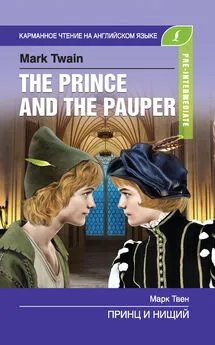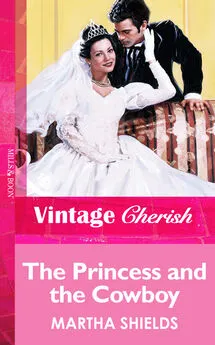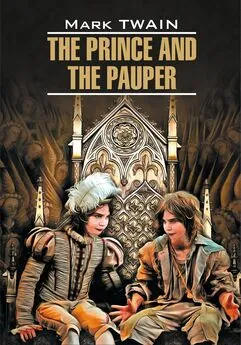Oscar Wilde - The Happy Prince and Ohter Tales
- Название:The Happy Prince and Ohter Tales
- Автор:
- Жанр:
- Издательство:неизвестно
- Год:неизвестен
- ISBN:нет данных
- Рейтинг:
- Избранное:Добавить в избранное
-
Отзывы:
-
Ваша оценка:
Oscar Wilde - The Happy Prince and Ohter Tales краткое содержание
The Happy Prince and Ohter Tales - читать онлайн бесплатно полную версию (весь текст целиком)
Интервал:
Закладка:
`You have rightly chosen (ты правильно выбрал; to choose (chose, chosen) — выбирать, отбирать) ,' said God, `for in my garden of Paradise (потому в моем Райском Саду; Paradise — рай) this little bird shall sing for evermore (эта маленькая птичка будет петь вечно; evermore — возвыш. всегда, вечно) , and in my city of gold (и в моем золотом городе) the Happy Prince shall praise me (Счастливый Принц будет прославлять меня; to praise — хвалить, восхвалять) .'
precious['pre∫əs ] god [god ] angel ['eindζ(ə)l] paradise['pærədais] praise [preiz ]
`Bring me the two most precious things in the city,' said God to one of His Angels; and the Angel brought Him the leaden heart and the dead bird.
`You have rightly chosen,' said God, `for in my garden of Paradise this little bird shall sing for evermore, and in my city of gold the Happy Prince shall praise me.'
The Nightingale and the Rose
“She said that she would dance with me (она сказала, что будет танцевать со мной) if I brought her red roses (если я принесу ей красные розы; to bring (brought)) ,” cried the young Student (воскликнул юный Студент; to cry — кричать, орать; восклицать) ; “but in all my garden (но во всем моем саду) there is no red rose (нет ни одной красной розы) .”
From her nest in the holm-oak tree (в своем гнезде на дубе: «со своего гнезда на дереве каменного дуба») the Nightingale heard him (его услышал Соловей; nightingale — соловей, сущ. в англ. языке имеет женский род, независимо от половых различий, так как относится к мелким представителям животного мира, которые традиционно воспринимаются слабыми и беззащитными, поэтому замещается местоимением “she”, наряду с традиционным “it”) , and she looked out through the leaves (и выглянул из листвы: «сквозь листья»; leaf (мн.ч. leaves)) , and wondered (и заинтересовался) .
“No red rose in all my garden (ни одной красной розы во всем моем саду) !” he cried (плакал он; to cry — кричать; плакать) , and his beautiful eyes filled with tears (и его прекрасные глаза наполнились слезами) . “Ah, on what little things does happiness depend (ах, от каких пустяков: «маленьких вещей» зависит счастье; to depend on) ! I have read all (я прочел все) that the wise men have written (что написали мудрецы; wise — мудрый, умный, to write (wrote, written) ), and all the secrets of philosophy are mine (и постиг все тайны философии: «и все секреты философии мои = принадлежат мне») , yet for want of a red rose (и все же, за неимением /одной/ красной розы; for want of smth. — из-за недостатка, отсутствия чего-либо) is my life made wretched (моя жизнь стала жалкой: «моя жизнь сделана несчастной»; to make + прилагательное — выражает действие, соответствующее значению прилагательного, wretched — несчастный, жалкий; нищенский, никуда не годный) .”
nightingale['naitiŋgeil] philosophy[fi'lOsəfi] wretched['ret∫id]
“She said that she would dance with me if I brought her red roses,” cried the young Student; “but in all my garden there is no red rose.”
From her nest in the holm-oak tree the Nightingale heard him, and she looked out through the leaves, and wondered.
“No red rose in all my garden!” he cried, and his beautiful eyes filled with tears. “Ah, on what little things does happiness depend! I have read all that the wise men have written, and all the secrets of philosophy are mine, yet for want of a red rose is my life made wretched.”
“Here at last is a true lover (вот, наконец, настоящий влюбленный; here — здесь, тут; вот; true — верный, правильный; настоящий, подлинный) ” said the Nightingale (сказал Соловей) . “Night after night have I sung of him (ночь за ночью я пел о нем; to sing (sang, sung)) , though I knew him not (хотя я не знал его; to know (knew, known)) : night after night have I told his story to the stars (ночь за ночью я рассказывал о нем: «его историю» звездам; to tell (told), story — повесть, рассказ; история) , and now I see him (и теперь я вижу его) . His hair is dark as the hyacinth-blossom (его волосы темны, как цветок гиацинта) , and his lips are red (и его губы красны) as the rose of his desire (как та роза, которую он /так сильно/ желает: «как роза его сильного желания») ; but passion has made his face like pale ivory (но страсть сделала его лицо бледным, как слоновая кость: «подобным бледной слоновой кости») , and sorrow has set her seal upon his brow (и печаль наложила отпечаток: «поставила свою печать» на его чело; brow — бровь; поэт. лоб, чело) .”
“The Prince gives a ball to-morrow night (Принц дает бал завтра вечером; night — ночь; вечер) ,” murmured the young Student (шептал юный Студент; to murmur — говорить тихо, бормотать; шептать) , “and my love will be of the company (и моя возлюбленная будет среди гостей; love /в поэзии соответствует мужскому роду и заменяется местоимением he/ — любовь, влюбленность; предмет любви, company — общество, компания; гости) . If I bring her a red rose (если я принесу ей красную розу) she will dance with me till dawn (она будет танцевать со мной до рассвета) . If I bring her a red rose (если я принесу ей красную розу) , I shall hold her in my arms (я буду держать ее в своих объятиях: «в руках») , and she will lean her head upon my shoulder (и она склонит /свою/ голову ко мне на плечо; to lean — наклоняться, опираться; склоняться) , and her hand will be clasped in mine (и ее рука будет сжата в моей /руке/; to clasp — застегивать /на пряжку/; сжимать, пожимать) . But there is no red rose in my garden (но в моем саду нет ни одной красной розы) , so I shall sit lonely (поэтому я буду сидеть в одиночестве; lone — поэт. одинокий, уединенный) , and she will pass me by (и она пройдет мимо меня; to pass — идти, проходить, to pass by — не обратить внимания, пренебречь) . She will have no heed of me (она не обратит внимания на меня; heed — внимание, забота) , and my heart will break (и мое сердце разобьется; to break — ломать(ся); разбивать(ся)) .”
hyacinth['haiəsinθ] desire [di'zaiə] ivory['aiv(ə)ri] dawn [dO:n ]
“Here at last is a true lover,” said the Nightingale. “Night after night have I sung of him, though I knew him not: night after night have I told his story to the stars, and now I see him. His hair is dark as the hyacinth-blossom, and his lips are red as the rose of his desire; but passion has made his face like pale ivory, and sorrow has set her seal upon his brow.”
“The Prince gives a ball to-morrow night,” murmured the young Student, “and my love will be of the company. If I bring her a red rose she will dance with me till dawn. If I bring her a red rose, I shall hold her in my arms, and she will lean her head upon my shoulder, and her hand will be clasped in mine. But there is no red rose in my garden, so I shall sit lonely, and she will pass me by. She will have no heed of me, and my heart will break.”
“Here indeed is the true lover (вот, несомненно, настоящий влюбленный) ,” said the Nightingale (сказал Соловей) . “What I sing of, he suffers (то, о чем я пою, он /это/ переживает/страдает; to suffer — страдать, испытывать, претерпевать) —what is joy to me (то, что для меня радость) , to him is pain (для него — боль/страдание) . Surely Love is a wonderful thing (действительно, Любовь — это удивительная вещь) . It is more precious than emeralds (она более драгоценна, чем изумруды) , and dearer than fine opals (и дороже, чем прекрасные опалы; fine — ясный; прекрасный) . Pearls and pomegranates cannot buy it (жемчуга и гранаты не могут купить ее) , nor is it set forth in the marketplace (/да и/ не выставлена она на рынке; to set forth — выставлять /напоказ/) . It may not be purchased of the merchants (ее невозможно купить у купцов) , nor can it be weighed out in the balance for gold (и невозможно ее взвесить на весах = выменять за золото; weight — вес, to weigh — взвешивать) .”
Читать дальшеИнтервал:
Закладка:
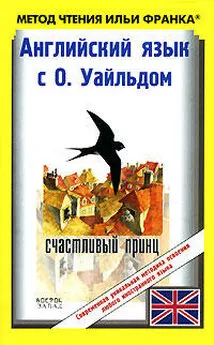
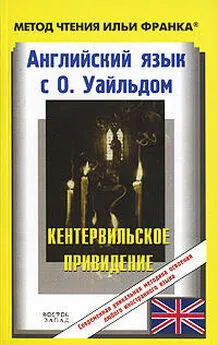
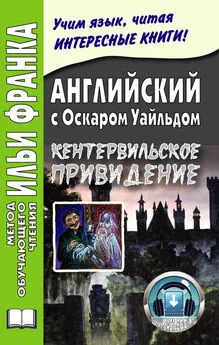
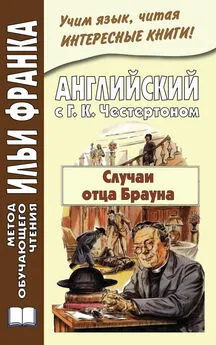
![О Генри - Принцесса и пума [The Princess and the Puma]](/books/1076182/o-genri-princessa-i-puma-the-princess-and-the-pum.webp)

